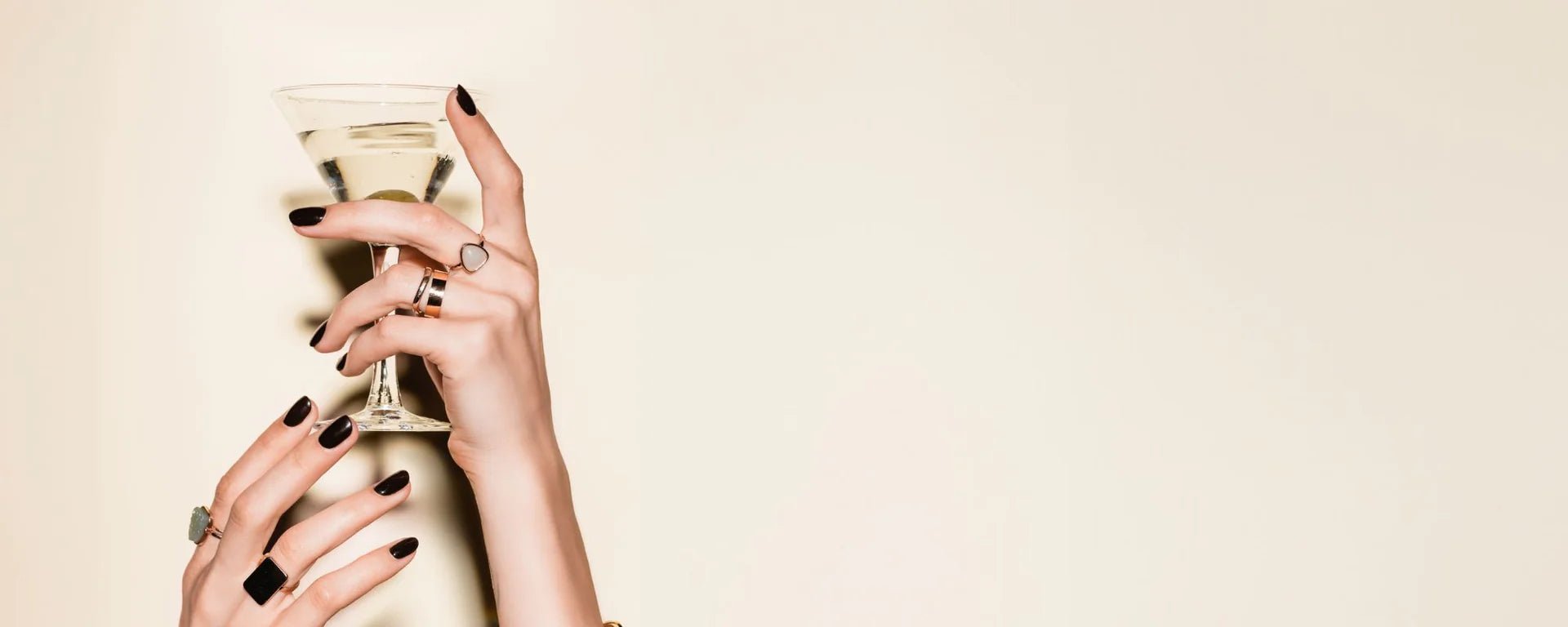When it comes to kicking off a New Year, there can be pressure to wrap up last year’s highlights alongside next year’s who-to-be’s, how-to’s, and what-to-see’s. Rather than tie a bow on an unrealistic—or even unsettling—version of what it looks like to roll into a new calendar year, we decided to have a real and inspiring conversation with Aliza Shapiro.

Aliza is a therapist and the founder of a NYC-based practice that treats mental health disorders of all kinds. We wanted her honest take on Dry January, drinking and mental health, New Year’s Resolutions, and the idea of hitting reset—our focus for the first week of 31 days with Boisson. She offers a wholly refreshing take on what it means to honor your desires while staying connected to others and being kind to yourself. We love her candid takes on the difficulties of perfectionism, the power of airplane mode, nixing New Year’s Resolutions, and self-acceptance as the ultimate catalyst to change.
Given her insight that shining a light on ourselves in solitude can be a challenge, we’re so grateful to have connected. This chat made us feel a bit lighter about entering 2024, no pressure attached.
Thanks for joining us! Can you kick us off with a bit about yourself and your practice, Therapy In The City?
It's so great to be here. Thanks for having me! My name is Aliza, and I am a therapist specializing in the treatment of anxiety, OCD, and related disorders. I've had the great privilege of opening up a therapy practice in NYC two years ago, called Therapy in the City, and it has been one of the most meaningful and fulfilling experiences of my life. Over the last couple of years, the practice has expanded to LA and Miami as well, and we treat mental health challenges across the spectrum including relationships, depression, life transitions, ADHD, and more. We work with adults, couples, teens, and children, and our mission is to bring quality therapy that is evidence based, culturally relevant, and individually inspired, to everyone who seeks it.
How has mindful drinking—and drinking and general—shown up differently in your work over the past few years?
By far the greatest shift we've noticed in drinking patterns was over the Covid pandemic. So many adults were struggling with isolation, stress, anxiety (and monotony!), and had very few outlets to help them through the very big, or very dull moments. Drinking, which was once a hobby reserved for a special occasion, had suddenly become a nightly habitual norm.
For many people, consistent drinking became a 'new normal.’ But, we also noticed that as individuals began working through their pandemic feelings/traumas/habits, their awareness about the impacts of drinking contributed to a really interesting shift in drinking patterns overall.
As people began to notice how drinking was affecting them, they in turn became more mindful about their choices. Many limited consumption overall, even if they had no intention of becoming sober.
As we enter Dry January, it's easy to think about a 'month off' in black and white terms—we either do it, or we don't. What's your opinion on the common all-or-nothing approach?
In therapy we use a term called "dialectics," which means the ability to allow two opposing forces to exist at the same time. For example: I can love myself, and need to change parts of myself at the same time. Or, I want to try Dry January and I absolutely may not be able to do it perfectly. Perfectionism is the greatest threat to habit change. Black and white/all or nothing thinking is a very difficult way for us human beings to move through the world. We actually have a whole section of therapy called "dialectical abstinence" which is designed for people who are striving to change any form of addiction or habit. In dialectical abstinence we strive to reach our chosen goal with everything we've got, while being open to the reality that we WILL fall off the horse. As long as we know that imperfection is not a crisis, we can get back up.
What are a few of your top tips for someone who is questioning their relationship to alcohol, but doesn't know where to begin?
Do it with curiosity, non-judgement, and radical truth-telling. We encourage our patients to observe patterns in their lives with the curiosity of a scientist. It helps remove judgment, and allows us to look at ourselves without the questions of "right and wrong" (which hold a lot of pressure).
Instead, try the questions "is this working for me?" and "how does it make me feel?" (which give us insight into what we really value). Remind yourself that there is no requirement to completely upend your life. You can reflect on your relationship to alcohol by asking what drinking brings up for you, how it makes you feel after, if you're doing it to avoid anything, and what patterns occur as a result of consumption. I always think it's helpful to speak with a trusted best friend, sibling, therapist, or mentor who can help you answer the hard questions. It's hard to shine the light on ourselves, by ourselves.
This week's focus is on the idea of 'reset'. What's the benefit of taking time to set intentions around something like Dry January?
There is an age old adage that goes something like this: on any journey, by plane, train, or foot, if you veer even one degree from your original path you will unknowingly end up in a completely different place than you intended. This is true for all of us, on every journey. We live in a packed world with so many demands, and it's easy to veer off track from our values without realizing we've done so.
The concept of "Reset" means taking stock of how far we've come, but also recalibrating our compass, to ensure we're on the right path to exactly where we're trying to go. Reset is an incredible time to remove distractions (alcohol included) and envision how we want our lives to look in the coming year. When we set intentions around our deepest goals, we're simply more likely to get there.
How do you take time to 'reset' in the new year—or any time?
My favorite way to reset is by turning my phone on airplane mode for a few hours and letting myself think or write. I find that letting my mind wander without any expectations, distractions, or judgements always brings me to great, and sometimes unexpected, places. My friends tell me I'm horrible with my phone (we joke that it's my most toxic trait), but it's usually because I'm resetting by spending some much needed time in my own brain. I try to let my values provide the direction for a reset, and if goals are attached I always cut them in half or give myself twice as long to achieve them. It’s better to have a goal we can really accomplish and feel proud of even if it's small, than a goal we can't really attain even if it's impressive.
Any hot takes on the age-old tradition of New Year's Resolutions?
I actually began nixing New Year's Resolutions a few years ago. I think one of the hardest things to truly do is to accept ourselves exactly as we are irrespective of any accomplishment, achievement, or accolade, so to me that becomes the one thing I try to reflect on at the start of each year (and at many points in between). As Carl Rogers so wisely states: “The curious paradox is that when I accept myself, just as I am, then I can change."
Our motto at Boisson is seeing the Glass Half Full. How does Dry January allow people to move into this mindset?
I like to define gratitude as the medium through which we can finally access the goodness that has already been in our lives for some time. We often need to clear our minds of distractions to see what we truly have, and Dry January—however we choose to celebrate it—allows us to do just that.


